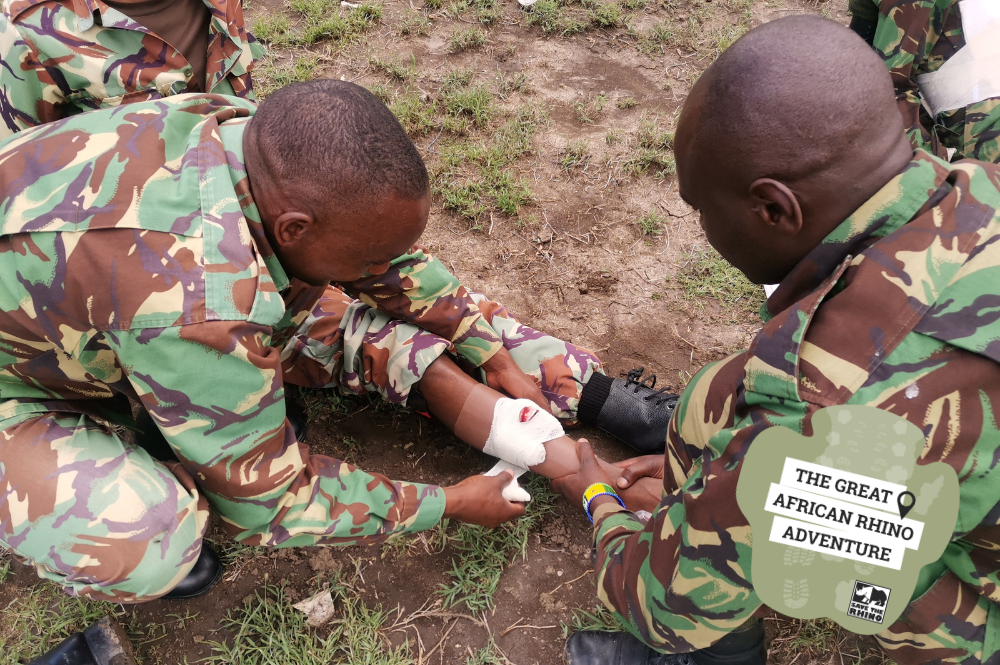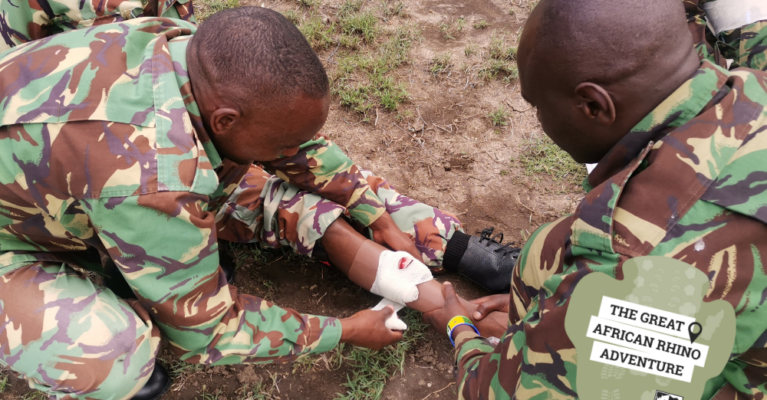

Credit: Save the Rhino International
Training opportunities for Ol Pejeta’s rangers
Bordering South Sudan, Somalia, Ethiopia and Uganda, Kenya is nestled snuggly amidst countries of conflicts past and present. With an unstable region of its own in the north, Kenya is a hotspot for illegal automatic weapons. Yet the centre of the country is home to a number of important rhino populations, including those at Ol Jogi, Lewa, Borana and – the largest of all – Ol Pejeta Conservancy.
Recognised as the home of the last two known Northern white rhinos on Earth, Ol Pejeta also has black and Southern white rhinos. Unfortunately, this makes Ol Pejeta a tempting target for poaching criminals. Multiple rhinos have been lost to poaching here but, with the Conservancy bolstering its security efforts, none have been illegally killed since 2017. Such efforts range from the continued maintenance of the Canine Unit, to close engagement with people living in neighbouring communities and the resumption of frequent ranger training courses.
Thanks to a series of grants from the US Government’s Bureau of International Narcotics and Law Enforcement (INL), rangers at Ol Pejeta have recently had more opportunities for training. The training provides a chance for teams to learn new skills, refresh their knowledge and understand best practice, ready to implement in field situations. Courses have been delivered on first aid, human rights, National Police and Kenya Wildlife Service Acts, weapons handing, as well as combat and basic fitness.
With some courses involving practical scenarios, the rangers have thoroughly enjoyed participating, not only as an investment into their professional development but as a welcome shift in their day-to-day roles and responsibilities. As is often the case with team training opportunities, these days offer a chance to build morale, helping to lift spirits and foster a more supportive and effective working environment for everyone.
Ol Pejeta’s endangered animals, including rhinos and elephants, are much safer thanks to the consistent efforts by the team. Now, rather than constantly responding to urgent poaching security incidents inside the Conservancy, rangers are increasingly using their time and skills to help improve the overall security of the region. Following up on cases of other crimes such as petty theft, livestock rustling, fence vandalism, illegal grazing and bushmeat poaching have further nurtured and cemented the much-valued relationships with those communities that neighbour Ol Pejeta.
Yet, reports of active rhino poaching syndicates in the area continue and, with rhino horn remaining highly valuable and sought after, it is essential that Ol Pejeta’s teams and those working in neighbouring conservancies do not become complacent. Close collaboration and aligned capabilities across local conservancies are key to keeping rhinos, and people, safe. After all, it only takes one weak link in the chain and all rhino sanctuaries in this region will become vulnerable. Maintaining competent, well-trained, well-equipped and motivated teams of rangers who are comfortable and as safe as possible remains paramount for Kenya’s rhinos.

